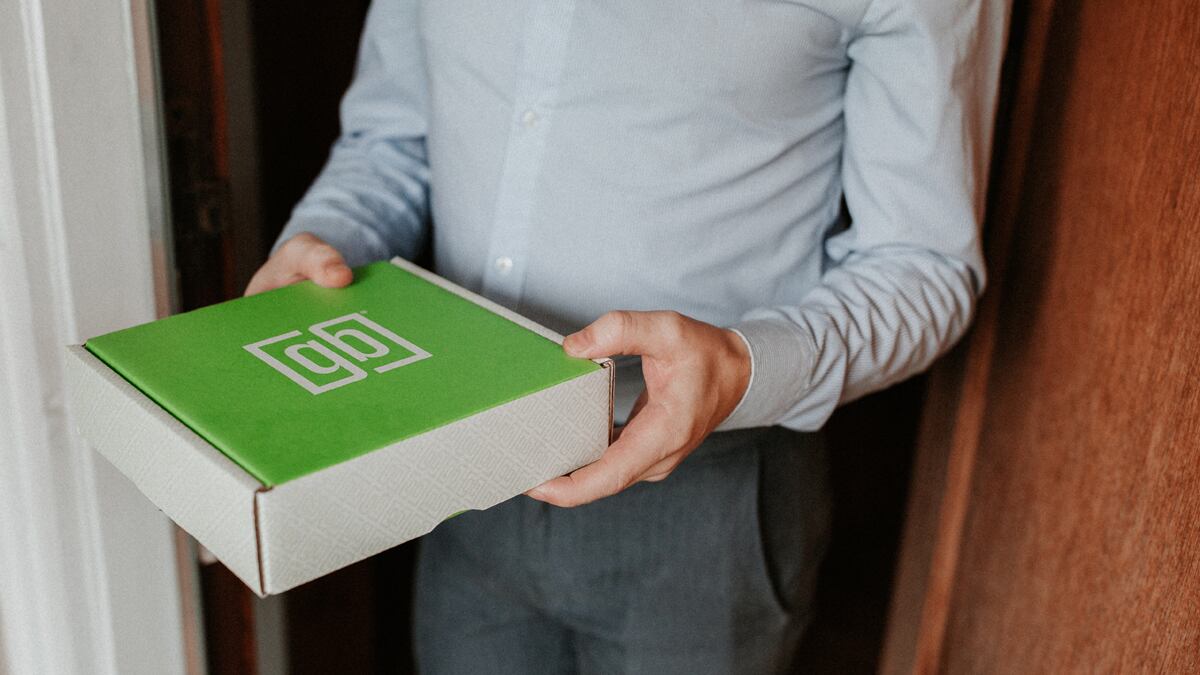The scene: a young food delivery driver stands outside a Gresham apartment building on a rainy evening, waiting for the resident who placed the order to come downstairs and pick up the paper bag. When the customer does come down, the handoff is quick, and everyone goes on their way.
In suburban locales such as this, it’s hard to tell just how well regulated this third-party delivery process may be, if at all. Portland, however, has just made it easier by cementing a once temporary statute.
In a unanimous vote Jan. 4, announced by Mayor Ted Wheeler’s office, the Portland City Council approved a permanent 15% cap on food delivery fees to be charged to restaurants and food trucks by third-party delivery apps such as DoorDash and Grubhub. This rule originated during the COVID-19 pandemic, in June 2020, and was extended again in July 2022. Here, Portland follows the example of other major cities, including Seattle and San Francisco, with the permanent rule taking effect in March 2023.
Portland has seized on a growing trend; how likely is it that other cities in the region will cap food delivery fees themselves?
“I would not be surprised if Vancouver followed suit,” said one staff member at a restaurant in that city, who requested to remain anonymous. Asked about the potential impacts thereof, this staff member said, “I would hope it would have a positive impact on local restaurants, as many are still reeling from the effects of COVID-19.”
Making these food delivery fee caps permanent shows how much the City Council cares about Portland’s local food scene, going at cross purposes with food delivery apps and their practices. How might the apps and their parent companies respond?
One possibility is that food delivery apps will attempt to cut costs by increasing their reliance on the new practice of virtual or “ghost kitchens,” which have a presence on the apps but not necessarily in any physical space. Uber Eats, in a statement to Portland’s KOIN 6 News, admitted to having helped create thousands of ghost kitchens in recent years. Kurt Huffman of ChefStable “understands the concept from a business perspective, but also said it feels deceptive to some degree.”
E-commerce is no stranger to such practices which eschew brick and mortar, except perhaps in faceless corporate offices. A 2020 New York Times article spotlighted how Amazon played host to Chinese vendors, selling a wide variety of ordinary items under the names of trademarks of their own invention. These trademarks’ ownership traces back only as far as, in some cases, anonymous business parks (as the article put it, “FRETREE Grows in Shenzhen,” referring to a company whose U.S.-patented name is attached to wall mounted air fresheners, corkscrews, etc.). The Times even compared this to Western nomenclature precedent for trademarks, with examples given of pharmaceutical products like Ubrelvy and their numerous commercials.
Third-party delivery apps, of course, know how to play their own marketing games. Uber Eats has had a number of celebrity spokespeople, including one sci-fi fandom collision as Mark Hamill and Sir Patrick Stewart make dueling orders. Meanwhile, DoorDash has been collaborating with Marvel of late, designing a comic book universe where “Dashers” are the superheroes.
It’s a strange contradiction. Third-party food delivery companies are here engaging in advertising ubiquity, spending millions on bolstering their brands and often on the backs of entertainment’s biggest names. At the same time, some of them are making it a point of cutting costs by doing business with ghost kitchens as opposed to established restaurants.
In company offices, higher-ups may look towards boosting the ghost kitchen industry in Portland and other cities which have placed limits on their economic power. A long cycle of countermoves between cities and corporations could result.
If enough cities, however, follow the leads of Portland, Seattle, and San Francisco, food delivery apps may have to slash their advertising budgets in favor of bringing more human convenience to company and customer alike.
